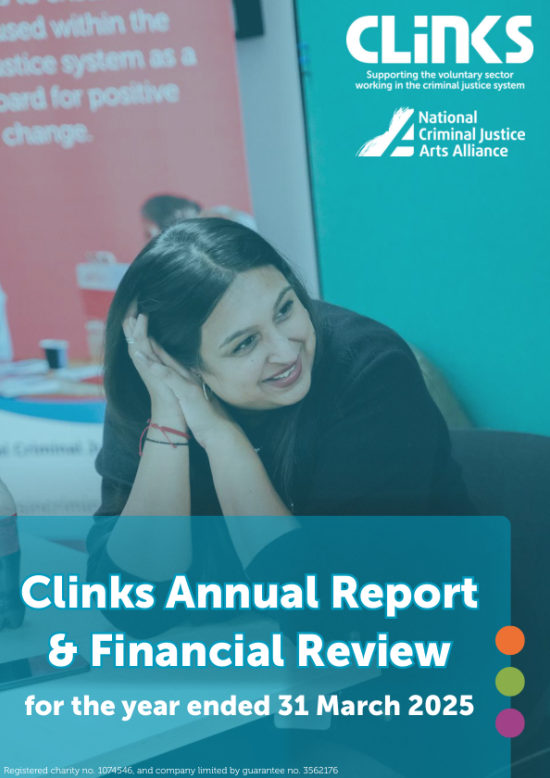The Sentencing Bill:
The Sentencing Bill has now been laid before Parliament (2 September) and will give effect to a number of the recommendations contained within the Independent Sentencing Review’s final report.
We covered many of the expected elements in last week’s blog and provide more details below. We will be providing further analysis of the Bill’s key clauses, in due course.
The impact assessment, published alongside the Bill, suggests that the measures will free up approximately 7,500 places in 2028, predominantly via the implementation of the progression model, changes to recall, and the presumption against short sentences. Based on a forecasted growth in the prison population, it is still expected that there will be around 2,000 more people in prison by May 2029 compared to current levels.
The assessment also suggests that the Bill's measures will 'commence implementation' in 2026, with its costs dependent on the implementation date.
Sentencing:
Progression model:
As stated previously, the progression model will be predicated upon an absence of bad behaviour as opposed to incentivised good behaviour for those serving Standard Determinate Sentences (SDS). It will be a three-stage model:
-
The first third will be spent in custody
-
The second third – the intensive supervision period – will be spent under supervision in the community with additional restrictive measures. Intensive supervision will be tailored to risk and the type of offence
-
In the final third, everyone on probation will remain on license and be at risk of recall if in breach of license conditions. There will be an end to active supervision by probation in this final third, apart from those considered to be the highest risk.
The model means that those serving an SDS with an automatic release point at 40 or 50 percent of their sentence will be eligible for release at the one-third point. For those serving an SDS with an automatic release point of 67 percent, their earliest possible release will be at the 50-percent point.
People subject to multi-agency public protection arrangements (MAPPA) will remain in the intensive supervision stage for the entirety of their sentence. The model will not apply to people serving extended determinate or life sentences.
Bad behaviour while in prison would lead to additional days being added through the existing adjudication process. The Bill proposes doubling the maximum time that can be added for each incident. Multiple incidents of bad behaviour would lead to punishments being added consecutively.
Presumption against short sentences of 12 months or less:
There will be a presumption against short sentences, allowing the suspension of sentences up to 12 months. There will be exemptions, including breach of court order and for those who are considered to pose a significant risk of harm, and will be room for judicial discretion.
Suspended sentences:
Sentencers will be able to suspend sentences of up to three years, as opposed to the previous 2 years, as well as being able to prevent Extended Determinate Sentences (EDS) or Sentences for Offenders of Particular Concern from being suspended.
Deferred sentences:
Sentencers will be able to defer sentences for up to 12 months, up from the previous figure of 6 months.
Purposes of sentencing:
The statutory purposes of sentencing will be amended to specifically reference victims.
Recall:
The Bill will amend recall provisions for SDS to lengthen the fixed-term recall period to 56 days, following which there will be an automatic release, except in exceptional circumstances. The Bill lists a number of offences which will be excluded eligibility for a FTR.
This follows on from previous changes to recall provisions, which have been operationalised this week, and mandate 28-day fixed-term recalls for people serving Standard Determinate Sentences of less than the four years.
Remand/bail:
The Bill goes beyond the remit of the ISR, which did not focus on the issue of remand. It will allow for a modest change to focus on the ‘real prospect of custody test.’ If there is no real prospect of a custodial sentence, then there will be a presumption against imprisonment. The alternative to remand will be bail and additional powers will be sought to ensure that Electronic Monitoring Bail is an option, with bail conditions then applying.
Finding of domestic abuse:
Clause 6 of the Bill introduces a ‘formal judicial finding of domestic abuse at the point of sentencing in criminal cases’, to more effectively identify domestic abuse perpetrators.
New legal requirement for Sentencing Council guidelines to be agreed by the Justice Secretary:
There is a clause that introduces a statutory obligation on the Sentencing Council to obtain joint approval from the Justice Secretary and the Lady Chief Justice for ‘all sentencing guidelines before final, definitive guidelines are issued.’
There will also be a statutory obligation for the Council to publish an annual business plan, which must be approved by the Lord Chancellor before publication.
Community:
Expansion of Electronic Monitoring (EM):
EM will be expanded for people under intensive supervision - the second stage of the three-stage, progression model. This will be supported by an additional £100m of investment.
The Bill will also legislate for a presumption that everyone leaving prison will be 'tagged' as part of the intensive supervision phase. Probation staff will be able to specifically decide not to use tagging.
Further, there will be a pilot – to be established in October – that will see some people tagged before they are released, with plans for a wider rollout.
Replacement of the Rehabilitation Activity Requirement (RAR) with a new probation requirement:
The Bill will enable the replacement of the Rehabilitation Activity Requirement (RAR) with a new probation requirement, with the details still to be confirmed. The intention is to give probation practitioners greater flexibility in aligning engagement with a person’s individual risks and needs.
Establishment of a community sentence progression scheme:
A community sentence progression scheme in the Probation Service will be establish to incentivise engagement with probation and court-ordered requirements. The relevant clauses in the Bill will provide for early termination of a Community Order (CO) and the supervision period of a Suspended Sentence Order (SSO) if all court-ordered requirements and all other objectives in a person's sentence plan have been completed.
New community order requirements:
Trailed beforehand, sentencers issuing suspended and community sentences will be able to add additional requirements such as driving and drinking bans, as well as bans from sporting events.
In the changes to current restrictions for people on probation, there will be a reversal of current exclusion zones which prevent people on license from going into certain areas. Instead, there will be victims-focused, ‘restriction zones’ that will aim to restrict people on release to specific areas.
Earned credits:
People serving community sentences will be able to earn credits, through engagement with the requirements of their order. This will allow them to earn time off the unpaid work requirement if they engage effectively.
Ending of community orders:
Probation officers will also be able to end community orders once a person has completed all of their requirements, instead of having to wait until the end of the order.
Reforms to unpaid work orders:
New 'ways' will be developed to enable people to undertake what has been called 'tough, unpaid work.' This will incorporate working with local authorities to ascertain how people can give back to their communities.
Financial penalties:
Financial penalties will be imposed to force people to 'pay back for their crimes.' This will include through new income reduction orders, which will allow judge to order the forfeiture of income as a form of punishment during a sentence.
Amendments to Home Detention Curfew (HDC):
Proposed amendments to HDC will mean that people serving adults SDSs will no longer be able to be released early on HDC.
Repeal of Post Sentence Supervision
Clause 31 of the Bill would repeal Post Sentence Supervision
Next steps:
Second Reading of the Bill will take place in the next few weeks, and it is expected that it will have completed all of its parliamentary stages by the beginning of 2026. The passage of the Bill will sit alongside concurrent work being led by officials that will operationalise the non-legislative components of the ISR - which include measures such as expanded provision of Intensive Supervision Courts, and funding commitments for initiative such as Women's Centres.
There will be a dedicated team overseeing the implementation of the programmes contained within the Bill, in addition to ongoing work from the Our Future Probation Service programme that is focused on reducing demand on the probation service by 25%. In prisons, there is a separate programme to oversee changes to custodial sentences and recall.
We will be continuing to engage officials on the detail of the Bill, raising any sector concerns regarding the proposed changes. Please do keep an eye on our digital channels for further updates.
What's new
Blogs
Anne Fox CEO of Clinks to stand down after a decade of service
Latest on X
The role is for a leader from an organisation focused on racially minoritised people, with expertise in service delivery, policy, advocacy, or related areas in criminal justice. Racial disparities are present at every CJS stage. This role ensures these voices are central in shaping policy to help address and eradicate them. Apply by Mon 18 Nov, 10am. More info: https://www.clinks.org/voluntary-community-sector/vacancies/15566 #CriminalJustice #RR3 #RacialEquity

